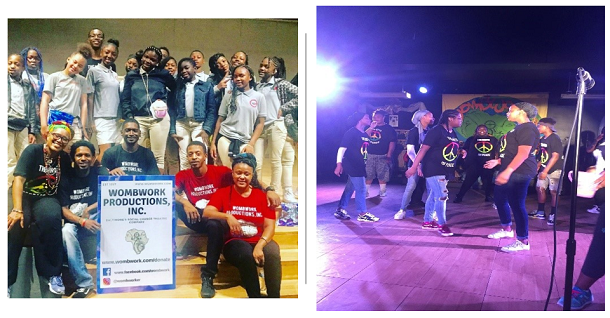
Tell me about your community and the communities that your coalition serves – its population and unique features. When was the coalition formed?
Founded in 1729, Baltimore is a major urban city with a long history as an important seaport. Fort McHenry, birthday place of the U.S. National Anthem, the Star-Spangled Banner, sits at the mouth of one of Baltimore’s main attractions, the Inner Harbor. Baltimore is also known as “Charm City” and is the home to more than 600,000 individuals.
The West Baltimore Get SMART Drug Free Coalition (DFC) resides in West Baltimore within the geographical areas of Sandtown-Winchester, Walbrook Junction and Lower Park Heights. The coalition serves African American youth and their families and enhances capacity building for community-based organizations within the identified areas. These organizations are committed to reducing racial and ethnic health disparities as well as the structural determinants of health that limit self-efficacy and create barriers to life and health opportunities. The coalition’s overarching goal is a coordinated approach to building healthy communities through a culture of strategic collaborations.
What unique issues is your coalition facing?
The Get SMART DFC operates within three geographic areas that are also a part of what is known as Baltimore’s Transformation Zones. Transformation Zones are geographic areas where States concentrate funding and technical assistance services to support strategic systems-level work. However, these are also high-crime areas where reports of homicides, nonfatal shootings, burglaries, car thefts, and gunfire are common. Additionally, these areas are considered to encompass high-risk areas, education inequality, concentrated poverty and poor housing opportunities.
The unique issues that the Get SMART DFC faces are those common among neighborhoods with limited opportunities. These include high levels of unemployment, low-education readiness, public safety concerns, lack of adequate transportation, and food deserts. In addition, there are approximately 112 liquor outlets within the Get SMART catchment areas.
What activity or program is your coalition most proud of and/or what activity would you like us to spotlight?
“Our coalition is very proud of all the efforts made to delay, reduce, and eliminate alcohol and substance use among youth ages 12 – 17,” said the coalition’s Project Director Dr. Lorece Edwards. “However, we would like to shine the spotlight on our strategic collaboration with WombWork Productions, Inc which allows the coalition to use community-based theater (CBT) as a culturally appropriate environmental strategy. WombWork works within the local community to deliver programs that positively impact the attitudes, behaviors, and life choices of the youth. The programs encompass character development, peer mentoring, and professional training in acting, dancing, and vocals that allow youth to dramatize real-life issues and instill a desire to heal and share their stories and experiences.”
“Community performances also serve to enrich the local neighborhoods through cultural programs incorporating elements of traditional African dancing, singing, and performing with contemporary elements of hip-hop, spoken word, and rap,” said Edwards. “Performances tackle relevant social issues throughout the Baltimore community, including gun violence, domestic abuse, HIV, grief and loss, drug/alcohol misuse, gang violence, sexual assault, social justice and racial equity. Community- based theater involving youth offers unique opportunities for personal growth, social connection, health promotion and advocacy efforts.”
How did you get there, and what are your outcomes? (Be as specific as possible in terms of strategies that you used)
“There are several benefits for using CBT as an environmental strategy,” said Edwards, “youth get to discuss issues that are salient to them, applied theater gives more meaning to pertinent issues, and participating in CBT fosters a sense of resilience because it offers problems-solving skills.”


